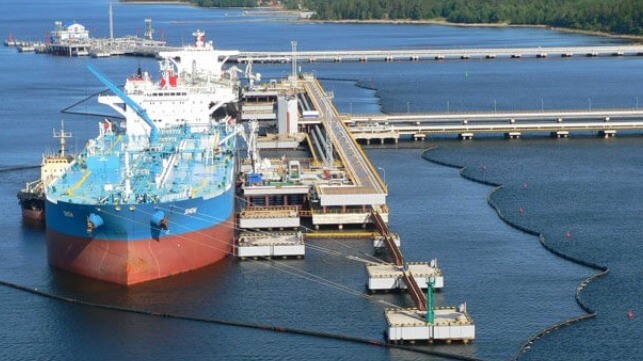US Puts Liability for Russian Oil Price Cap on Traders, Not Shipowners

Marine insurers, bankers and tanker owners may not be liable if their customers violate the new G7 price cap on Russian oil sales, according to the U.S. Treasury - so long as they rely on their customers' word for shipment price compliance. The ruling addresses some of the shipping industry's main concerns about the potential effects of the ban.
On Sept. 2, the G7 finance ministers proposed "a comprehensive prohibition of services which enable maritime transportation of Russian-origin crude oil and petroleum products globally" - except for oil purchased below a certain price. The idea is a form of a "buyer's OPEC": unless the oil is sold below an artificial price threshold, it can't be insured or moved without risking sanctions.
The Treasury's guidance, issued Friday, sets up three tiers of service providers for seaborne Russian oil transport: refiners and oil brokers with direct access to price data (Tier I); bankers and shipowners with occasional access to price data (Tier II); and those who have no access to price data in the normal course of business, like insurers and P&I clubs (Tier III).
All have to keep records of compliance, and all are required to do due diligence on their customers, but shipowners, bankers and insurers have an important exemption: they are allowed to rely on their customers for price data. If that data is fraudulent, they are not liable for accidentally participating in a sanctions violation.
"This recordkeeping and attestation process is designed to create a 'safe harbor' for service providers from liability for breach of sanctions in cases where service providers inadvertently deal in the purchase of seaborne Russian oil above the price cap due to falsified records," advised Treasury's Office of Foreign Asset Conrol.
OFAC does expect to see attempts at sanctions evasion, and it cautioned involved parties to watch for signs of deceptive practices, such as AIS manipulation or reluctance to provide pricing data.

that matters most
Get the latest maritime news delivered to your inbox daily.
The office said that it intends to harmonize its regulatory approach with the other members of the G7, indicating that the same guidance will be applied broadly.
The unprecedented decision to put a global price cap on seagoing shipments of Russian oil is an attempt to restrict the amount of money flowing to Moscow without an outright ban on its crude. A full ban would have substantial impact on the rest of the global economy, and the price cap is intended as a compromise solution.
